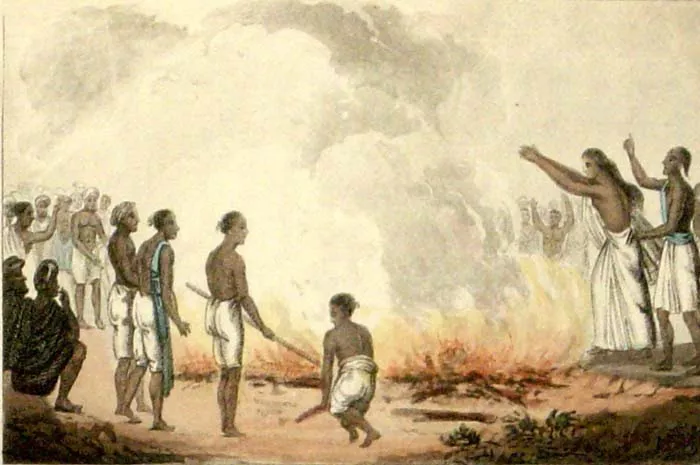December 4 has witnessed several significant events throughout British history. This article will explore key occurrences on this date, detailing their historical context and implications. From legislative changes to cultural milestones, each event reflects the evolving narrative of Britain and its global influence.
What Happened on December 4 in British History?
The Ban on Suttee in India (1829)
One of the most notable events on December 4 occurred in 1829 when the British colonial government banned the practice of suttee (or sati) in India. Suttee was a funeral practice among some Indian communities, where a widow would self-immolate on her husband’s funeral pyre. This practice was deeply rooted in certain cultural and religious beliefs, symbolizing a woman’s devotion to her deceased husband.The decision to ban suttee was influenced by various factors, including humanitarian concerns and changing attitudes towards women’s rights. British officials, particularly Governor-General Lord William Bentinck, viewed the practice as barbaric and an affront to human dignity. The ban was part of a broader reform movement during the British Raj, aimed at modernizing Indian society and reducing practices deemed oppressive or harmful.The implications of this ban were profound. It marked a significant intervention by colonial authorities in local customs and practices, leading to tensions between traditionalists who viewed this as an attack on their culture and reformers advocating for women’s rights. The suttee ban also paved the way for further social reforms in India, including efforts to improve women’s education and legal status.
Proclamation of the Kingdom of Serbs, Croats, and Slovenes (1918)
On December 4, 1918, the Kingdom of Serbs, Croats, and Slovenes was proclaimed. This event followed the end of World War I and the dissolution of the Austro-Hungarian Empire. The new kingdom aimed to unite South Slavic peoples under a single state, reflecting nationalist aspirations that had been growing throughout the region.The formation of this kingdom was significant for several reasons. It represented a shift in political boundaries in Europe following the war and aimed to create a sense of national identity among diverse ethnic groups. However, this unification was fraught with challenges as it encompassed various nationalities with distinct languages, cultures, and historical grievances.The kingdom faced internal strife and political instability in subsequent years, leading to its eventual transformation into Yugoslavia in 1929. The complexities of governance among its diverse populations would later contribute to significant conflicts during the 20th century, including civil wars in the 1990s.
The Second Cairo Conference (1943)
During World War II, December 4 marked the beginning of the Second Cairo Conference, attended by prominent Allied leaders: British Prime Minister Winston Churchill, U.S. President Franklin D. Roosevelt, and Turkish President İsmet İnönü. The conference aimed to discuss strategies for defeating Axis powers in North Africa and planning future military operations.This conference was crucial for several reasons:
Military Strategy: Leaders reviewed military progress in North Africa and discussed plans for future offensives against German and Italian forces.
Post-War Planning: Discussions also included considerations for post-war stability in Europe and the Middle East.
Strengthening Alliances: The conference served to solidify relationships among Allied nations during a critical phase of the war.
The outcomes of this conference would influence military strategies that ultimately led to Allied victories in various theaters of war.
The Mysterious Case of the Marie Celeste (1872)
On December 4, 1872, a significant maritime mystery unfolded when crew members from the British brigantine Die Gratia boarded a deserted ship drifting in the Atlantic Ocean—the Marie Celeste. The ship was found with its captain’s table set for a meal but with no sign of its crew or passengers.The disappearance of those aboard the Marie Celeste has sparked numerous theories over the years:
Piracy: Some speculated that pirates might have attacked.
Mutiny: Others suggested that crew members may have staged a mutiny or abandoned ship.
Natural Phenomena: Explanations have also included potential natural disasters or hallucinations caused by alcohol fumes from cargo.
The case remains one of maritime history’s most enduring mysteries, capturing public imagination and inspiring countless books, films, and theories about what might have happened.
Led Zeppelin Disbands (1980)
In a more contemporary context, December 4 is also remembered as the day in 1980 when legendary British rock band Led Zeppelin announced their disbandment following the death of drummer John Bonham earlier that year. Bonham’s passing marked a profound loss for the band and its fans.Led Zeppelin had been one of the most influential rock bands since their formation in 1968, known for their innovative sound that blended rock with blues and folk elements. Their disbandment signaled an end to an era in rock music characterized by elaborate live performances and groundbreaking studio albums.The legacy of Led Zeppelin continues to resonate today; they are often cited as one of the greatest rock bands of all time. Their music remains popular across generations, influencing countless artists and genres.
Conclusion
December 4 has been a date marked by significant events that shaped both British history and global affairs. From social reforms in colonial India to pivotal moments during wartime negotiations and cultural milestones in music history, each event reflects broader trends within society at large. Understanding these occurrences provides insight into how past actions continue to influence contemporary issues today.This exploration highlights how history is not merely a series of dates but rather interconnected narratives that define nations and cultures over time. Each event on December 4 serves as a reminder of Britain’s complex legacy—one that encompasses both triumphs and challenges across different eras.
Related Topics:

